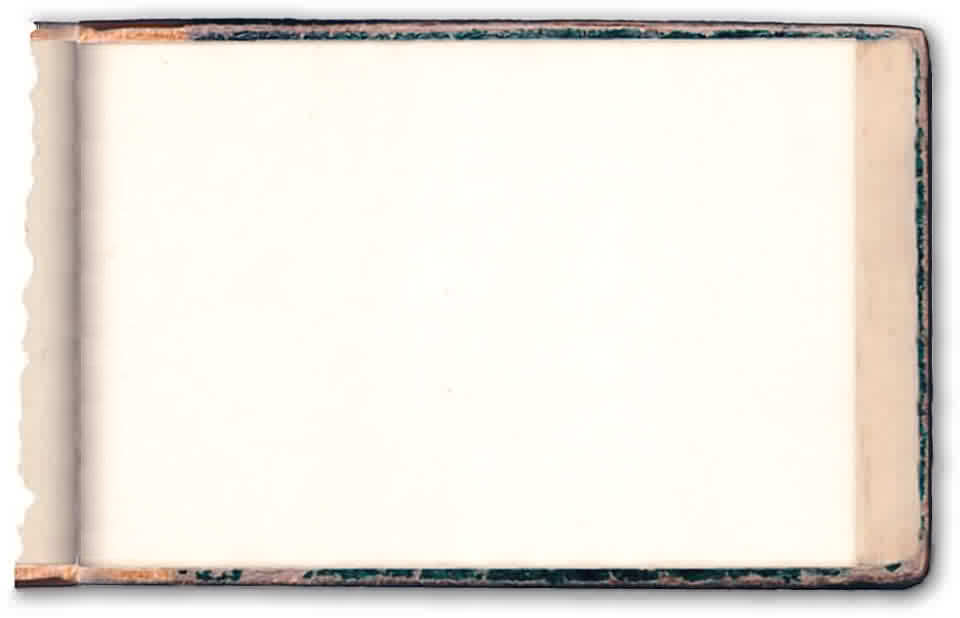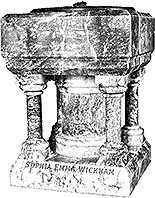
A year after their wedding,
Daniel and
Mary are in church for another special event, the
christening of their first child, a
daughter, who is to be given her mother's name.
According to the Book of Common Prayer, infants should be baptised on a Sunday (so they can be welcomed by the largest possible congregation) no later than the second Sunday after birth. Today is an unholy Friday — strike one against little Mary. But she is probably not much older than the couple of weeks stipulated by the Church: at a time of high infant mortality, it seems unlikely that Daniel and Mary would delay the ceremony. There could be a charge of as much as one shilling and sixpence for the registering of the baptism, but this might be waived in a case of hardship.
At least one godmother (preferably two) and one godfather are required, one of whom must be somebody other than the parent. We know nothing of Daniel and Mary's extended family at this time, and can only wonder who they've chosen to perform these roles. Whoever they are, they should exercise their right to save the baby from being dipped "discreetly and warily" into the cold font. It's November, on an exposed hilltop. The last thing a small baby needs is to be steeped before being offered back to the winter air.
Where are the family living? and how far must they travel home? They are probably unaware of the publication 'The Gentleman's Diary',
whose Almanac in this month's issue tells that today's sun
rose just before eight in the morning and will set just after
four in the afternoon. Interwoven with the calendar data,
like a secret
message in a coded letter, are the
following lines:
'The Gentleman's Diary',
whose Almanac in this month's issue tells that today's sun
rose just before eight in the morning and will set just after
four in the afternoon. Interwoven with the calendar data,
like a secret
message in a coded letter, are the
following lines:
Now, or in a few Weeks
we may reasonably expect
to have Winter upon us in
good earnest. Wind, Rain,
Sleets, Snow, Frosts, Cold,
to make good fires agreeable.
If they're lucky, Daniel, Mary and the baby have just such a good hearth to welcome them at the end of the day.
According to the Book of Common Prayer, infants should be baptised on a Sunday (so they can be welcomed by the largest possible congregation) no later than the second Sunday after birth. Today is an unholy Friday — strike one against little Mary. But she is probably not much older than the couple of weeks stipulated by the Church: at a time of high infant mortality, it seems unlikely that Daniel and Mary would delay the ceremony. There could be a charge of as much as one shilling and sixpence for the registering of the baptism, but this might be waived in a case of hardship.

At least one godmother (preferably two) and one godfather are required, one of whom must be somebody other than the parent. We know nothing of Daniel and Mary's extended family at this time, and can only wonder who they've chosen to perform these roles. Whoever they are, they should exercise their right to save the baby from being dipped "discreetly and warily" into the cold font. It's November, on an exposed hilltop. The last thing a small baby needs is to be steeped before being offered back to the winter air.
Where are the family living? and how far must they travel home? They are probably unaware of the publication
 'The Gentleman's Diary',
whose Almanac in this month's issue tells that today's sun
rose just before eight in the morning and will set just after
four in the afternoon. Interwoven with the calendar data,
like a secret
message in a coded letter, are the
following lines:
'The Gentleman's Diary',
whose Almanac in this month's issue tells that today's sun
rose just before eight in the morning and will set just after
four in the afternoon. Interwoven with the calendar data,
like a secret
message in a coded letter, are the
following lines:Now, or in a few Weeks
we may reasonably expect
to have Winter upon us in
good earnest. Wind, Rain,
Sleets, Snow, Frosts, Cold,
to make good fires agreeable.
If they're lucky, Daniel, Mary and the baby have just such a good hearth to welcome them at the end of the day.



